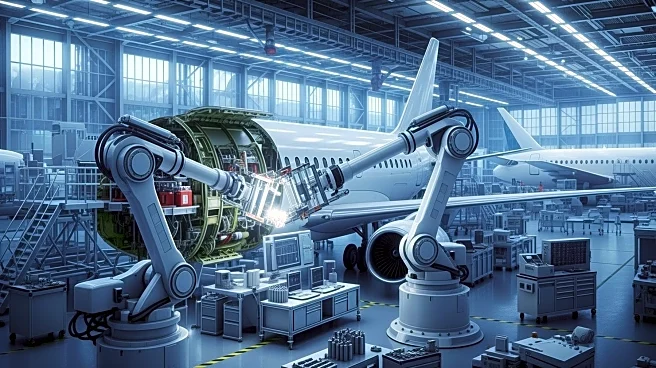What's Happening?
Incheon International Airport is currently developing a High Tech Aviation Complex across 2.34 million square meters. This complex is designed to provide a comprehensive Maintenance, Repair, and Overhaul
(MRO) solution, including light and heavy maintenance, engine and component repairs, and aircraft conversions. The complex is designated as a Free Trade Zone (FTZ), offering significant tax benefits and business incentives to attract global aviation industry stakeholders. The development aims to position Incheon as a key player in Northeast Asia's rapidly growing aviation sector, fostering innovation and growth in the global aviation industry.
Why It's Important?
The development of the High Tech Aviation Complex at Incheon International Airport is significant for the global aviation industry, particularly in Northeast Asia. By offering integrated MRO solutions and business incentives, the complex is expected to attract international aviation companies, boosting economic growth and technological advancement in the region. The FTZ designation provides tax benefits that can lower operational costs for businesses, making it an attractive location for aviation-related activities. This development could enhance Incheon's role as a major aviation hub, potentially influencing global aviation logistics and maintenance practices.
What's Next?
As the High Tech Aviation Complex continues to develop, stakeholders in the aviation industry may explore partnerships and investments to leverage the benefits offered by the FTZ. The complex's completion could lead to increased competition among global aviation hubs, prompting other regions to enhance their own facilities and incentives. Additionally, the focus on innovation may drive advancements in MRO technologies and practices, influencing industry standards and operations worldwide.
Beyond the Headlines
The establishment of the High Tech Aviation Complex at Incheon International Airport may have broader implications for international trade and economic policies. The FTZ designation could serve as a model for other regions seeking to attract foreign investment and stimulate economic growth through aviation and related industries. Furthermore, the complex's focus on innovation may contribute to environmental sustainability efforts in aviation, as new technologies and practices are developed to reduce the industry's carbon footprint.










